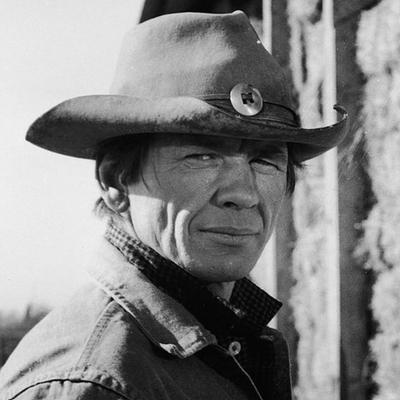
Charles Bronson Net Worth
$45 Million
Birth Date:
Birth Place:
Gender:
Height:
Nationality:
Professions:
Nov 3, 1921 - Aug 30, 2003 (81 years old)
Ehrenfeld
Male
5 ft 8 in (1.74 m)
United States of America
Actor , Soldier , Miner

Birth Date:
Birth Place:
Gender:
Height:
Nationality:
Professions:
Nov 3, 1921 - Aug 30, 2003 (81 years old)
Ehrenfeld
Male
5 ft 8 in (1.74 m)
United States of America
Actor , Soldier , Miner
Charles Bronson was an American actor with a net worth of $45 million at the time of his death, equivalent to about $75 million today. Bronson's career, which spanned from the 1950s through the 1990s, was marked by roles as tough characters such as gunfighters and vigilantes. By the early 1970s, he had become the highest-paid actor in the world. His breakout role came in the 1960 film The Magnificent Seven alongside Steve McQueen. Following this, he starred in notable films like The Great Escape and achieved solo stardom with Death Wish and its sequels. Bronson remains a cult favorite among movie fans. He passed away on August 30, 2003, at the age of 81, leaving behind four children from three marriages.
At his peak, Bronson was the highest-paid actor globally. He earned $1 million each for films like The Stone Killer, Chino, Death Wish, and St. Ives, and $1.5 million for Death Wish II. By 1982, he earned $2 million for 10 to Midnight, equivalent to $5 million today. Bronson negotiated lucrative deals, including 10-15% of gross receipts from ticket sales and film rentals as part of his 1975 Warner Brothers deal. In 2011, his estate sued Warner Brothers for improper accounting related to this revenue-share agreement.
Bronson's estate, valued at $45 million at his death in 2003, included significant real estate. His surviving wife received $1.6 million and an $8 million Malibu mansion; his children inherited a $5 million Vermont beach house and a $5 million Bel Air mansion, sold in 2014 for $20 million. Family disputes arose over the will, notably with claims from his third wife and his son Tony, who contested the distribution of assets.
In 1999, a stranger, Audrey Knauer, left her $300,000 estate to Bronson, which he donated to her favorite charity, the Louisville Public Library, after her family unsuccessfully contested the will.
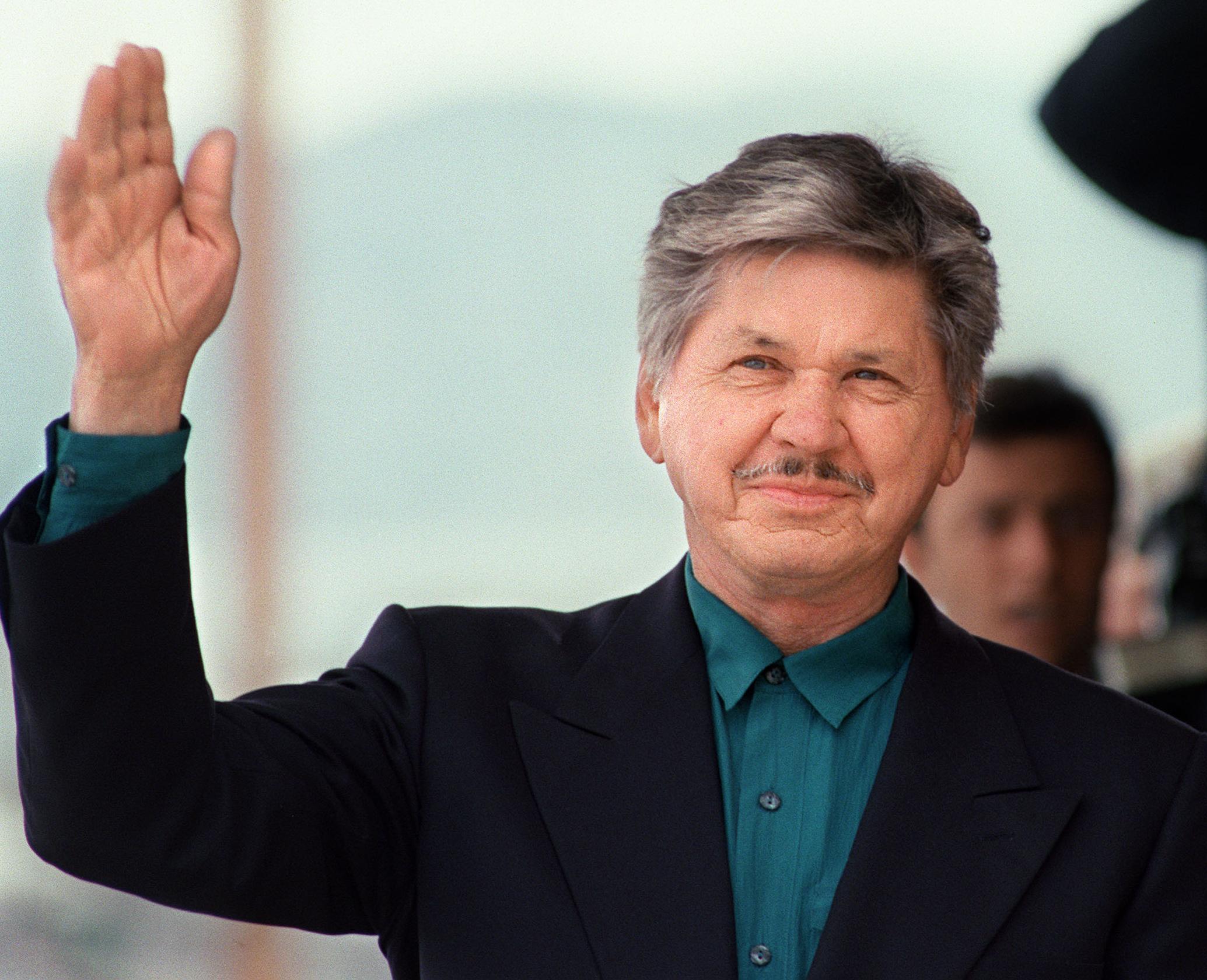
GERARD JULIEN/AFP/Getty Images
Charles Buchinsky was born on November 3, 1921, in Ehrenfeld, Pennsylvania, as the 11th of 15 children. His father was from southern Lithuania, and his mother was Pennsylvania-born of Lithuanian descent. Growing up, Bronson spoke Lithuanian and Russian, learning English in his teens. Following his father's death when he was 10, Bronson worked in coal mines to support his family. He overcame poverty to become the first in his family to graduate high school. Bronson enlisted in the Army in 1943, serving as an aerial gunner in the 61st Bombardment Squadron during World War II, earning a Purple Heart for his service.
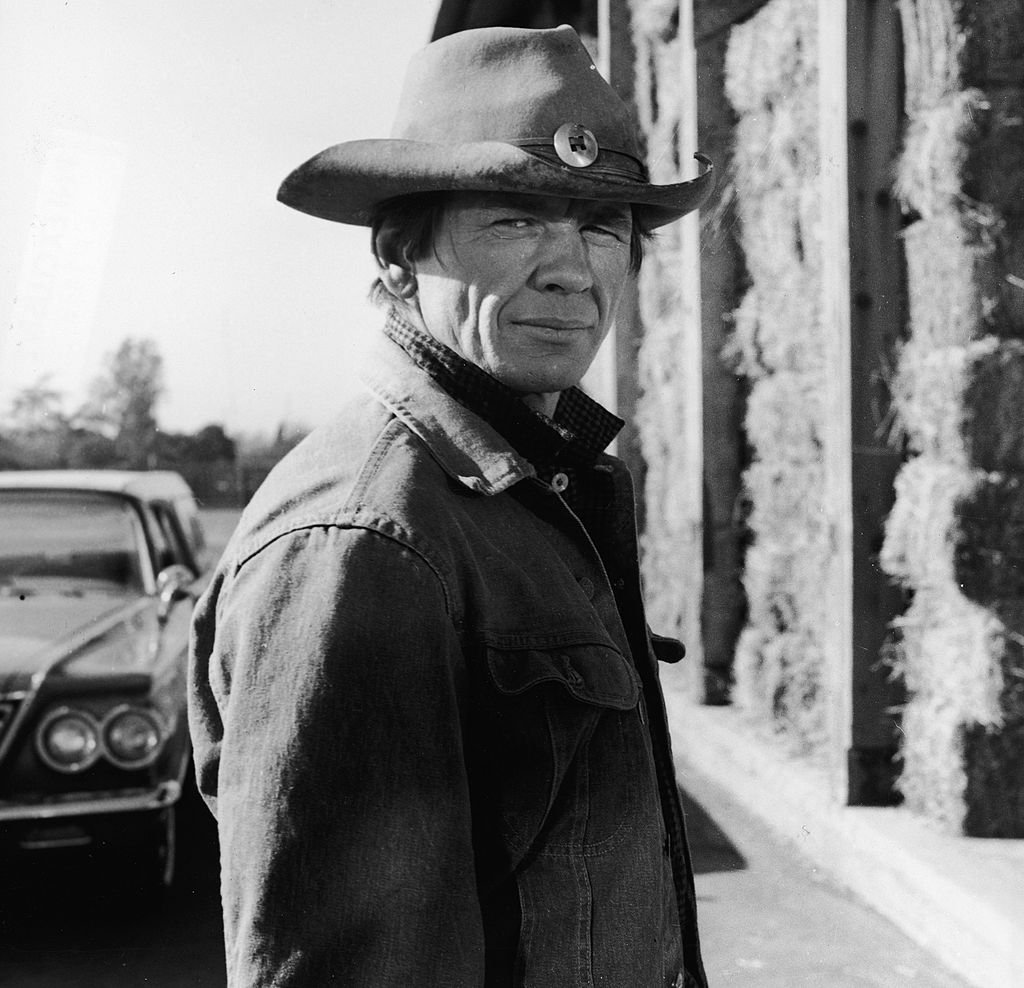
(Photo by Pictorial Parade/Courtesy of Getty Images)
After World War II, Bronson took various jobs before joining a Philadelphia theatrical group and then moved to New York City, followed by Hollywood in 1950. Initially credited as Charles Buchinsky, he changed his surname to Bronson in 1954. His first credited role under the new name was in Vera Cruz. Notable films of the 1950s included Target Zero and Jubal, alongside TV roles in series like U.S. Marshal.
In 1958, Bronson starred in Man with a Camera, leading to more prominent roles. He starred in The Magnificent Seven, The Great Escape, and The Sandpiper, solidifying his reputation in Hollywood. Dissatisfied with his roles, Bronson moved to Europe, achieving success with films like Once Upon a Time in the West.
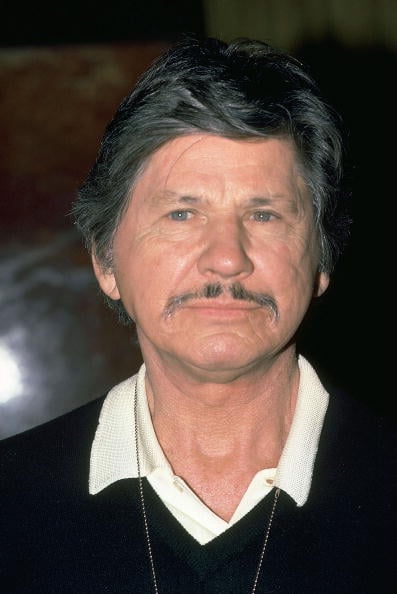
Newsmakers/Getty Images
Returning to the U.S., he became known for his role in Death Wish. Throughout the 1970s, he starred in hits like Breakout and Breakheart Pass. In the 1980s, he continued with films like Death Wish II and 10 to Midnight. His final appearances were in the Family of Cops TV movies from 1995 to 1999.
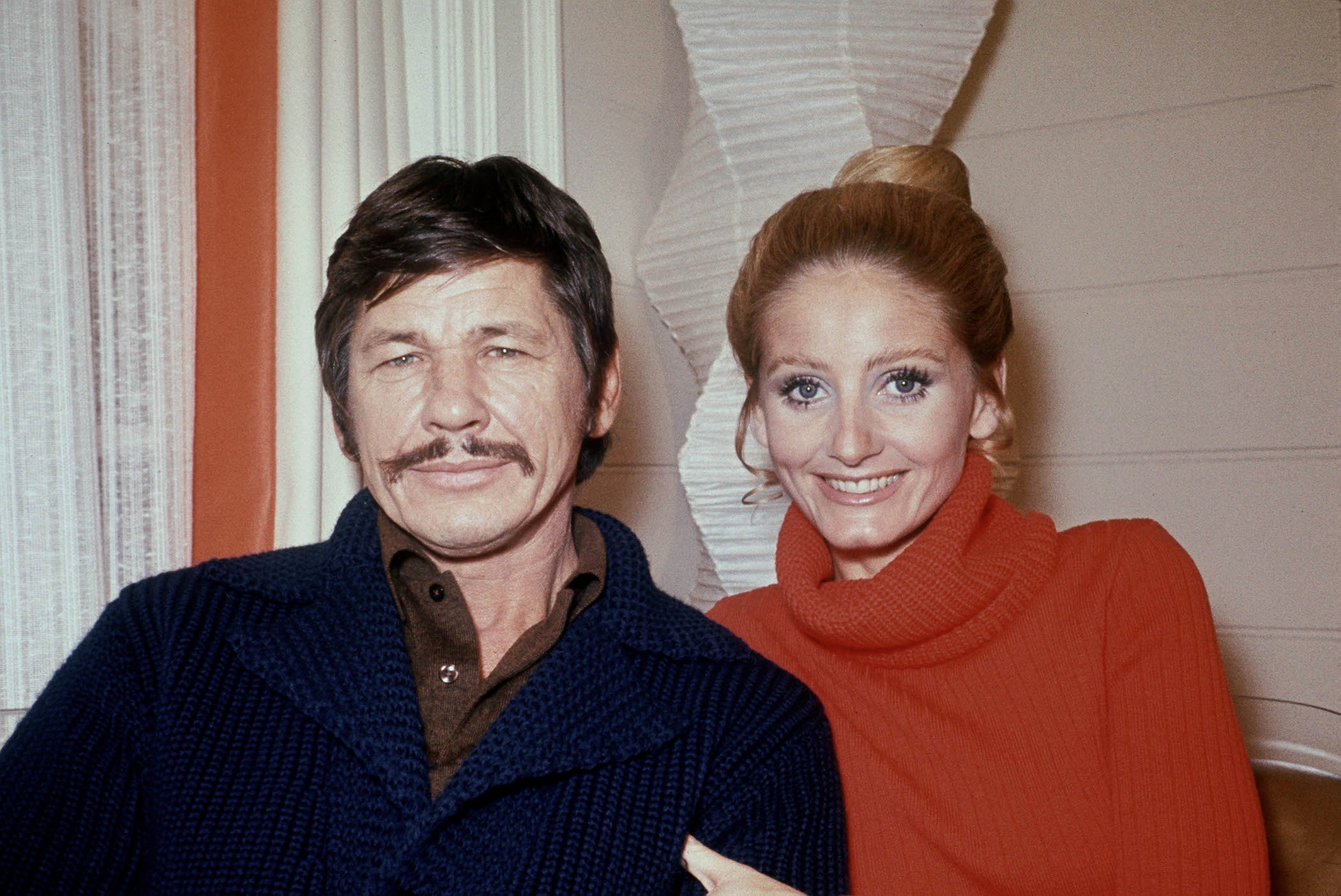
Charles Bronson and his wife Jill Ireland in 1970 (Getty)
Known for his introverted nature, Bronson often held grudges against early critics but gained a star on the Hollywood Walk of Fame in 1980. He married Harriet Tendler in 1949 and had two children before their 1965 divorce. In 1968, he married actress Jill Ireland, with whom he had two children and lived with five additional children from their previous marriages until her 1990 death from breast cancer. Bronson married Kim Weeks in 1998. His health declined in later years, leading to his death in 2003 from respiratory failure and other health complications.